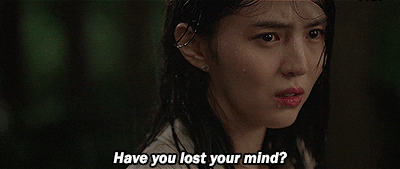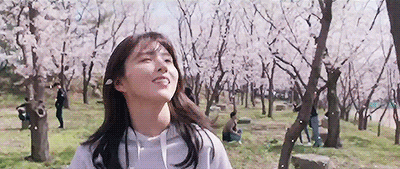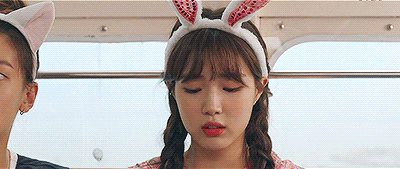
Note: I briefly outlined the plot for this show in one of my previous posts, so I won’t go into too much detail on synopsis here.
Once upon a time, Japanese dramas were my bread and butter. I was a big fan of Japanese pop and Japanese idols as a kid, and that naturally led me to Japanese dramas. From your high school classics Hana Yori Dango and Hana Kimi to thrillers like Bloody Monday and Liar Game, and tearjerkers like 1 Litre no Namida, I latched on to everything. But as legal streaming became the norm and my go-to websites were drowning in ads, I started to gravitate more towards Korean dramas, which are so much more accessible and had much larger communities to fangirl with.
Since then, I’ve only watched a smattering of Japanese dramas, but seeing a user over at Dramabeans posting about last year’s Why I Dress Up for Love piqued my interest and I decided to give it a go. A cute romance seemed right up my alley right now, and with the relative shortness of J-dramas (10 episodes in this show’s case), I had nothing to lose.
And I’m so glad I gave this show a shot! It’s seriously cute, and reminded me of all the reasons I loved watching J-dramas.
And did I mention that there is an equally adorable dog!?

At its core, Why I Dress Up for Love is about very different people learning to come together and care for each other during the ups and downs in their lives. It seems simple, almost cliche, but the show is filled with such earnestness that it was like a breath of fresh air.
Our heroine, Mashiba Kurumi (Kawaguchi Haruna), enters a share house run by her friend Kouko. Living there are food truck owner Fujino Shun (Yokohama Ryusei), Shun’s cousin and telehealth psychiatrist Terai Haruto, and aspiring artist Hase Ayaka. All of the boarders have very different personalities, leading to conflict early on in the show, especially between “maximalist” influencer Kurumi and the “minimalist”, technology-shunning Shun. But of course, they find themselves growing closer and closer as the show goes on, learning to appreciate each other for their differences.
Yep, that’s right. A cohabitation opposites-attract romance. SIGN ME UP.
I have to admit, I was skeptical at first. The defining factor of how I’ll feel about a romance drama is almost always how infuriating I find the male lead, and Shun has so many infuriating characteristics in the first couple of episodes that I was almost turned off. He comes across as pushy, judgmental, and annoying… but gosh darn it, he’s so charming I found myself being won over by the end of episode 3. He makes you roll your eyes to no end, but he’s so sincere with his feelings that you can’t help but fall for him.

From the beginning I worried that the whole show would be about making Kurumi see that her worldview was wrong and his was right, but that’s not what the show does at all. With both the romance and the platonic relationships between the housemates, we see characters have real conversations about their values and their dreams, and we see them begin to understand and appreciate the other because of their differences, not despite them.
I think my favorite part of J-dramas is the conversations between characters. They don’t always sound natural, but I often find them comforting. It’s nice to hear characters openly communicate with each other, probably because it so rarely happens in real life. The conversations, the solutions to conflict, and the friendships and relationships here are almost like a fantasy. Don’t get me wrong: I don’t mean that as a criticism at all. I found myself aching to live in that house with them! It really makes me wish I lived in their world, and it gives me hope that even someone as introverted and averse to starting conversations as me can make meaningful connections. The conversations here gave me similar vibes to The Full-Time Wife Escapist, which is a huge compliment by the way. That was probably the last romance J-drama I watched, and I adored it.
This show is a bit more dramatic than the aforementioned drama, but never as hugely dramatic as I feared. You know when you watch a drama and you start to get apprehensive, thinking the show is going down the most cliche, aggravating path possible, and then it ends up pleasantly surprising you? That happens so many times in this show that I lost count.

It’s hard to trust a drama’s writing when you’ve been burned so many times before, but by the end I had complete faith in this writer. I went from hating the inclusion of the second male lead, terrified that he would be nothing but a nuisance, but I was so happy to find that my worries were mostly unfounded. Yeah, he does the whole annoying “I realized I like her because someone else likes her now” thing, which I ABSOLUTLY HATE, but I ended up not minding his character. He tries to win over our heroine at first, but after a while, when he realizes that she really does like Shun, he backs off. Thank goodness.
My other quibble with the show was probably Kurumi’s work in general. I found myself confused when they made her stop updating her social media in the beginning, but I also loved how supportive they were of her at the end. I felt like the show didn’t really know what they were doing with her workplace storylines. Nevertheless, I adored how they portrayed her as an influencer. There is this image most people have of influencer being ditzy bimbos, and Kurumi is not that at all. She has a very pure desire to show her life and the things she loves to her audience.
My opinion on social media has certainly soured in recent years, but I really do believe there are people out there who use it because they want to be a bright, happy spot in their followers’ everyday lives. These people might be rare, but I know they exist, and it was lovely to see such a character portrayed here. The show has her reexamine her dependence on social media and her phone, but it never shames her for placing value in the connections she has made to people online.

Both Kawaguchi Haruna and Yokohama Ryusei are new actors to me, and I was so pleased with their chemistry here. Yokohama just oozes charm as a romantic male lead, and I could watch him watch her all day long. Kawaguchi is a natural as a leading lady and I have my eyes set on her currently airing drama Silent that is getting rave reviews. I’ll definitely be checking out both of their other works in the future, and I hope to see them reunite at some point because I found them lovely to watch together.
The same can be said for the drama as a whole. While Why I Dress Up for Love may not have been perfect, the very fact that it left me wanting more in the end is a testament to the show’s quality, I think. The shorter length of Japanese dramas means that they very rarely overstay their welcome, unlike some Korean dramas, and I do believe I’ll be watching some more as the year winds down. If anyone has some recommendations for some enjoyable Japanese dramas I would love to hear them, because I am very much out of the loop. And if anyone out there is looking for an easy, light watch with moving conversations between characters, I really do recommend Why I Dress Up for Love. It’s a pleasure to see characters from all walks of life getting together and learning to appreciate one another, and it will definitely help you keep warm this winter.





































































